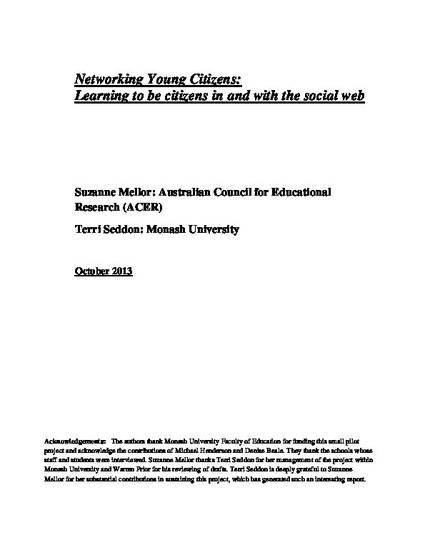
Many claims are made, both in the popular press and the professional education literature, about the significance of the social web in enabling civic participation. However empirical evidence supporting these claims is sparse and contested rather than strongly-indicative. The Monash University pilot research project, Networking Young Citizens, relates to the discussion about the ways in which the social web might support the civic participation, especially of young people, by examining the ways in which Web 2.0 was integrated into teaching and learning in the school, and any other processes of civic socialisation that were consciously adopted in three schools.
This research examined general school administrative practices that could be construed as being supportive of the development of a school community and citizenship behaviours, and also teacher engagement with their students in terms of explicit Civics and Citizenship curriculum and activities. The research was predicated on the view that both of these strands of educational work have potential for inducting students into citizenship dispositions and civic behaviours, and also the norms and practices, rights and responsibilities of democratic citizenship. The research also examined the young people’s experience of Web 2.0 and other social media platforms (Google, Facebook, Twitter, YouTube) and shared content sites (such as flickr, blogs, discussion forums) and sought their views and understandings of the potential of these processes for broader civic engagement.
Available at: http://works.bepress.com/suzanne_mellor/64/
